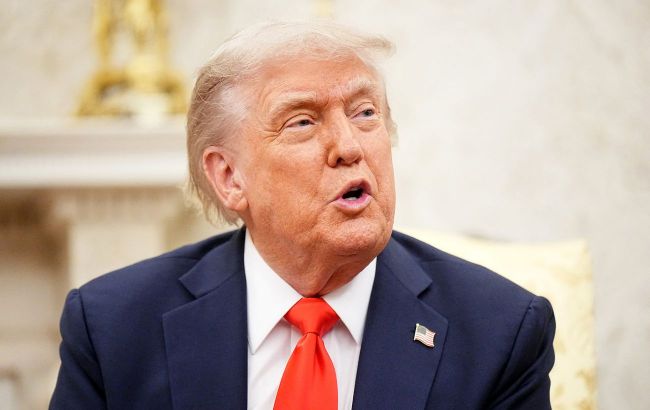USA offers trade deal or 'revenge tax' to global partners
 US President Donald Trump (Getty Images)
US President Donald Trump (Getty Images)
US trade partners have the opportunity to avoid the so-called "revenge tax" promoted by President Donald Trump — if they agree to strike deals with Washington. The White House is effectively pressuring its partners to do so, said White House National Economic Council Director Kevin Hassett, according to Bloomberg.
Hassett noted that the so-called Section 899, included in Trump's tax bill, could be waived for certain countries if they "issue policy pronouncements today or tomorrow." In other words, Hassett added, if they sign trade agreements with Washington and eliminate digital service taxes as well as taxes on American goods and services.
The outlet points out that it is highly unlikely dozens of countries will suddenly remove digital service taxes — at least not before Congress passes Trump's bill. These taxes enjoy strong political support, particularly in European countries.
Trump's tax bill also targets countries that have introduced a minimum 15% tax on foreign goods and services. However, Washington may soon find that things are not so simple: even if trade partners agree to scrap these taxes, the process will take months at best.
"We're in negotiations over tax issues, and those tax issues that we negotiate affect the trade deals as well… We're going to finish the tax business and then there are going to be a lot of deals signed right after that," Hassett assured.
What is the "revenge tax"?
The "revenge tax" refers to increased taxes on foreign investors and companies from countries that, according to the White House, unfairly tax US-based firms. This mainly targets nations like Canada, Australia, the United Kingdom, France, and others that impose so-called digital service taxes on major American tech companies — such as Meta Platforms (which owns Facebook), Google, and others.
Trump's tax bill containing this measure is currently under review in the US Congress. He is pushing for it to be passed by July 4, although that appears unlikely due to a number of controversial provisions that are still being debated.
US-Europe trade war
The issue of trade tariffs became a major point on the global agenda following Donald Trump's return to power in the United States. Starting in March 2025, the US imposed 25% tariffs on cars, steel, and aluminum from the European Union, followed by 20% tariffs in April on other EU goods.
Afterward, the US reduced the tariffs to 10% and expressed readiness to begin negotiations by July 8 on mutual tariff removals, tax relief, or favorable trade deals. In response, the EU's 27 member states suspended their own planned tariffs on selected US goods and proposed setting zero tariffs on all industrial products for both sides.
Since then, however, negotiations have made little progress. The stalemate has deepened to the point where Trump even threatened to impose 50% tariffs on EU goods starting June 1.

